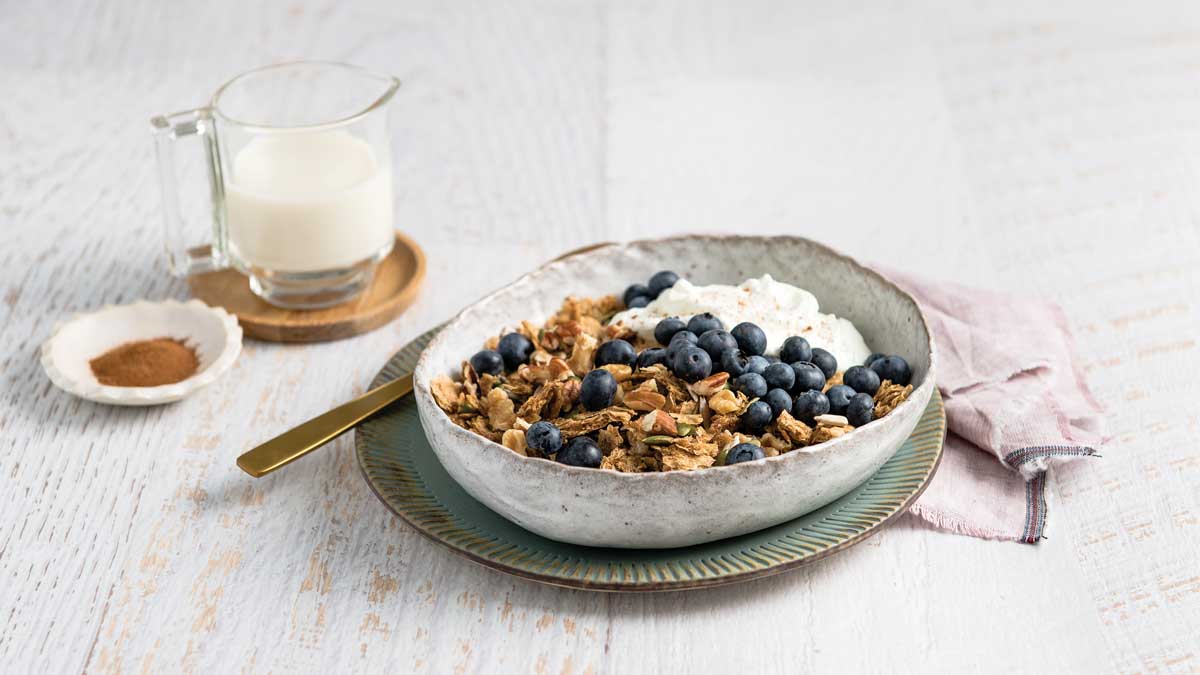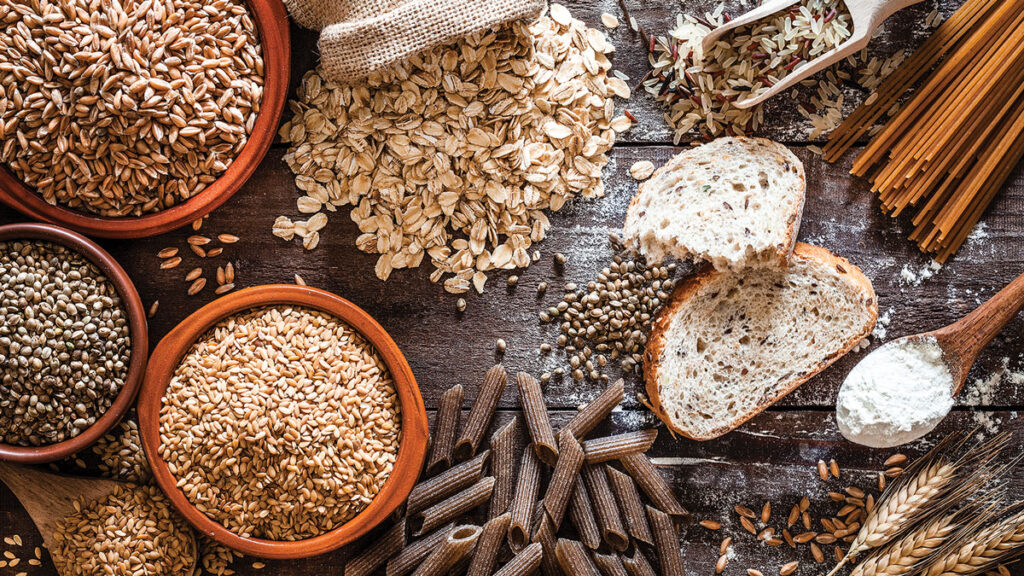We all know that sensation when our brain just doesn’t feel like it’s firing on all cylinders. While there’s no simple solution, what you eat may help.
Eating a diet rich in wholefoods, like fruit, veggies and wholegrains, could protect your brain now and as you get older, too.
The science shows immediate benefits of eating brain foods include a better mood, memory, clearer thinking and helping to combat depression. What you put on your plate can also pay off in the longer term by helping to protect or delay age-related damage and diseases such as Alzheimer’s and dementia. The Mediterranean diet and MIND diet are among the plant-rich diets that have shown significant brain health benefits.
Sanitarium dietitian Charlotte Moor shares her five favourite foods to help support your brain health.
1. Wholegrain cereals
The glucose from carbohydrates is your brain’s preferred energy source. But the choice of carbs matters. Starting the day with a lower GI wholegrain cereal will help to release glucose into your bloodstream more slowly, which provides a steady supply of fuel for the brain.
Studies have shown eating breakfast can help improve concentration and when it comes to kids, that extends to better behaviour and learning in school.
2. Blueberries
Berries are bursting with antioxidants and phytonutrients, which have been shown to boost cognition and memory. Blueberries are also high in polyphenols and flavonoids, the natural plant pigments that give berries their vibrant colour. Research shows these flavonoids contain high amounts of antioxidants, which help reduce forgetfulness and mild confusion, a common part of ageing.
3. Leafy greens
Green leafy veg, such as spinach and kale, not only help support the immune system and keep an ageing brain sharp, they are also a source of iron and a rich source of folate. Folate is a natural form of vitamin B9 that’s important for healthy red blood cell formation. Research has found that improving folate status can have beneficial effects on your cognitive function.
4. Nuts and seeds
Eating nuts has been linked with a reduced risk of depression as well as better cognitive function, learning, memory and mood. The combination of healthy fats (especially omega-3 fats found in walnuts and seeds like chia and flaxseeds) and nutrients with antioxidant and anti-inflammatory properties in nuts may help protect vital functions of the brain and its blood vessels.
5. Fermented foods
These are created when carbohydrates in food are converted into alcohol or acids by live microorganisms such as bacteria, yeasts and/or moulds. Eating fermented foods with live bacteria may help to improve gut health and reduce anxiety. A review of the research on fermented foods and cognition found promising signs for improved learning, memory and protecting brain cells. For more information and research references, you can read the full article at sanitarium.com.






